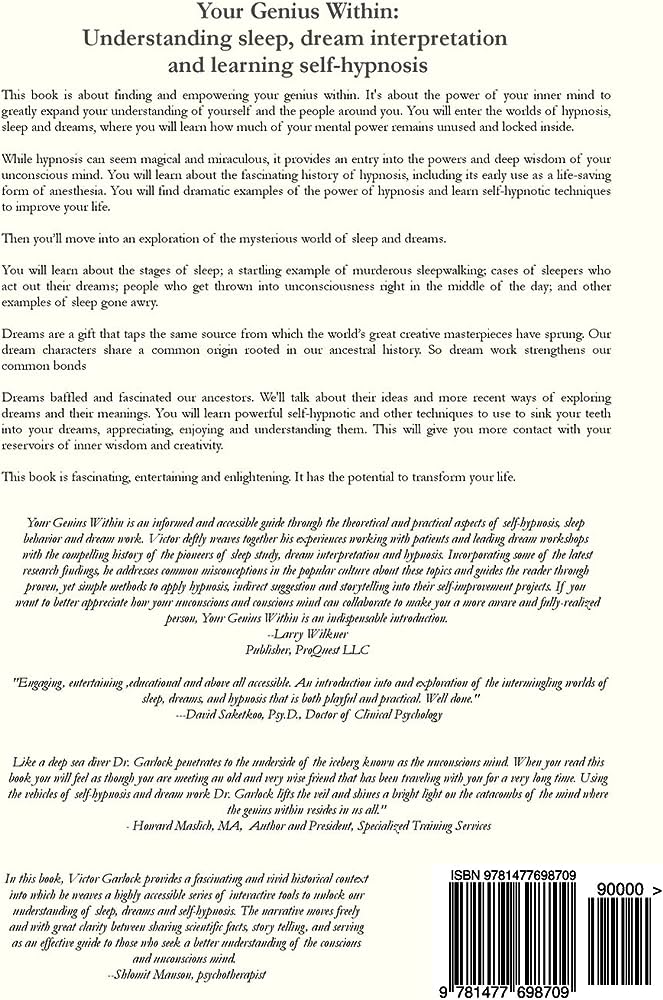Have you ever wondered about the enigmatic realm of dreams? Every night, as we drift into slumber, we embark on a fascinating journey filled with vivid images, emotions, and stories. Dreams have captivated human minds for millennia, giving rise to various interpretations and theories. In this article, we will explore the science of dreaming, delve into the neurobiology of dreams, and discuss their profound significance in our lives.
Understanding Dreams
At its core, a dream is a series of thoughts, emotions, and sensations experienced during sleep. Dreams have been a subject of intrigue across cultures and history. Different types of dreams add to the complexity of this phenomenon.
- Lucid Dreams: Lucid dreaming occurs when a dreamer becomes aware that they are dreaming and may have some control over the dream’s narrative.
- Nightmares: Nightmares are distressing dreams that evoke fear, anxiety, or sadness.
- Recurring Dreams: These are dreams that recur over time, often carrying a specific theme or message.
- Prophetic Dreams: Some cultures believe that dreams can offer glimpses into the future or provide valuable insights.
Dreams predominantly occur during Rapid Eye Movement (REM) sleep, a stage characterized by heightened brain activity, increased heart rate, and rapid eye movements beneath closed eyelids. Non-REM (NREM) sleep also plays a role in dream formation, although the dreams during this stage are usually less vivid.
The Neurobiology of Dreaming
Research has unraveled the neural processes underlying dreaming, involving various regions of the brain and neurotransmitters.
- Brain Regions Involved in Dreaming: The prefrontal cortex plays a crucial role in self-awareness and decision-making, but during dreaming, its activity decreases, which may explain why dreams can feel illogical or bizarre. The limbic system, responsible for emotions, influences the emotional content of dreams. The visual cortex activates during dreaming, creating vivid mental imagery.
- Neurotransmitters and Dreaming: Serotonin regulates mood, and its levels impact dream emotions. Dopamine affects motivation and reward and may contribute to dream vividness. Acetylcholine is associated with REM sleep and dream formation.
- Dreams and Memory Consolidation: Dreams may help consolidate memories and process emotions from our waking experiences, contributing to learning and emotional well-being.
Theories on Dream Function
Several theories attempt to explain the purpose and significance of dreaming.
- Freud’s Psychoanalytic Theory of Dreams: Sigmund Freud proposed that dreams are a window into the unconscious mind, revealing hidden desires and unresolved conflicts. He distinguished between manifest content (the surface-level dream) and latent content (the symbolic meaning).
- Carl Jung’s Collective Unconscious and Archetypes in Dreams: Jung believed that dreams tap into a collective unconscious shared by all humans, and certain symbols or themes (archetypes) have universal meanings.
- Activation-Synthesis Hypothesis by Hobson and McCarley: This theory posits that dreams are a result of random brain activity during REM sleep, and the brain attempts to create a narrative to make sense of the neural firing.
- The Problem-Solving Theory of Dreams: Some researchers propose that dreams help us solve problems and find creative solutions, as the mind is free to explore without the constraints of reality.
- Evolutionary Perspectives on Dreams: Dreams may have evolved to simulate dangerous situations, practice survival skills, or serve other adaptive purposes.
The Significance of Dreams
While dreams have intrigued humanity for centuries, their significance extends beyond mere curiosity.
- Personal Growth and Self-Exploration: Dreams can provide insights into our inner selves, helping us better understand our desires, fears, and motivations.
- Emotional Release and Stress Reduction: Dreaming may serve as a safe outlet for processing emotions, allowing us to release pent-up feelings.
- Creativity and Inspiration from Dreams: Many artists, writers, and inventors credit dreams for inspiring their creative works and problem-solving breakthroughs.
- Dreams as a Source of Spiritual Insights: In some cultures and belief systems, dreams are considered spiritual experiences that connect individuals to higher realms.
Lucid Dreaming: Awareness in the Dream World
Lucid dreaming offers a unique and empowering experience, where the dreamer gains consciousness within the dream environment.
- Definition and Characteristics of Lucid Dreams: In a lucid dream, the dreamer knows they are dreaming and may exert some control over the dream’s direction.
- Techniques to Induce Lucid Dreams: Various practices, such as reality checks, keeping a dream journal, and setting intentions, can increase the likelihood of lucid dreaming.
- Applications and Benefits of Lucid Dreaming: Lucid dreaming has been used for creative exploration, facing fears, and improving physical skills through mental rehearsal.
- Exploring the Boundless Potential of Lucid Dreaming: Ongoing research on lucid dreaming continues to uncover its potential applications in various fields.
Nightmares: Unraveling the Dark Side of Dreams
Nightmares are unsettling dreams that can leave a lasting impact on our well-being.
- The Nature of Nightmares and Their Causes: Nightmares may result from stress, trauma, or other psychological and physiological factors.
- Coping Mechanisms for Recurring Nightmares: Techniques such as lucid dreaming, imagery rehearsal therapy, and relaxation exercises can help reduce the frequency and intensity of nightmares.
- Transforming Nightmares into Positive Experiences: Some individuals have learned to reinterpret nightmares as opportunities for personal growth and empowerment.
Dream Analysis and Interpretation
Decoding the symbolism and meanings behind dreams can provide valuable insights into the dreamer’s psyche.
- Tools and Methods for Recording Dreams: Maintaining a dream journal can aid in recognizing patterns and recurring themes in dreams.
- Common Dream Symbols and Their Meanings: While dream symbols can be highly personal, some interpretations are widely recognized across cultures.
- The Role of Culture and Personal Experience in Dream Interpretation: Cultural beliefs and personal experiences can heavily influence how individuals interpret their dreams.
- Seeking Professional Help for Dream Analysis: For individuals struggling with recurrent and distressing dreams, consulting a therapist or dream expert may offer valuable insights.
Scientific Research on Dreams
Studying dreams scientifically presents unique challenges, but researchers have made significant progress in understanding this complex phenomenon.
- The Challenges of Studying Dreams: Since dreams are subjective experiences, obtaining reliable data can be difficult.
- Landmark Studies on Dreaming and Sleep: Pioneering research has shed light on various aspects of dreaming, including sleep cycles and dream content.
- Recent Advances in Dream Research: Advancements in neuroscience and technology have expanded our understanding of the brain’s activity during dreams.
- The Future of Dream Science: Ongoing research promises to unravel more mysteries surrounding dreams and their functions.
Lucid Dreaming and Its Potential Applications
Lucid dreaming has captured the attention of researchers and enthusiasts alike, leading to exciting possibilities.
- Virtual Reality and Dream Control: The intersection of lucid dreaming and virtual reality technology could revolutionize immersive experiences.
- Enhancing Creativity and Problem-Solving through Lucid Dreams: Lucid dreams offer a unique platform for exploring creative ideas and practicing real-life scenarios.
- Therapeutic Uses of Lucid Dreaming in Psychology: Lucid dreaming has shown promise in treating nightmares, anxiety disorders, and post-traumatic stress.
Conclusion
As we conclude our journey through the fascinating world of dreams, we recognize that dreams are not merely random sequences of events. They reflect the complexities of our minds and emotions, providing us with a wealth of information and potential for personal growth. The science of dreaming continues to expand, promising t click for more info o uncover even more profound insights into this captivating phenomenon. Embrace the power of your dreams and unlock the mysteries that lie within.

Greetings and welcome to my corner of the digital realm! I’m Ethan Harrington, a dedicated and passionate professional in the field of therapy psychology. My journey through the intricate landscapes of the human mind, emotions, and dreams has led me to this point, where I’m excited to share my insights, knowledge, and experiences with you. See this

